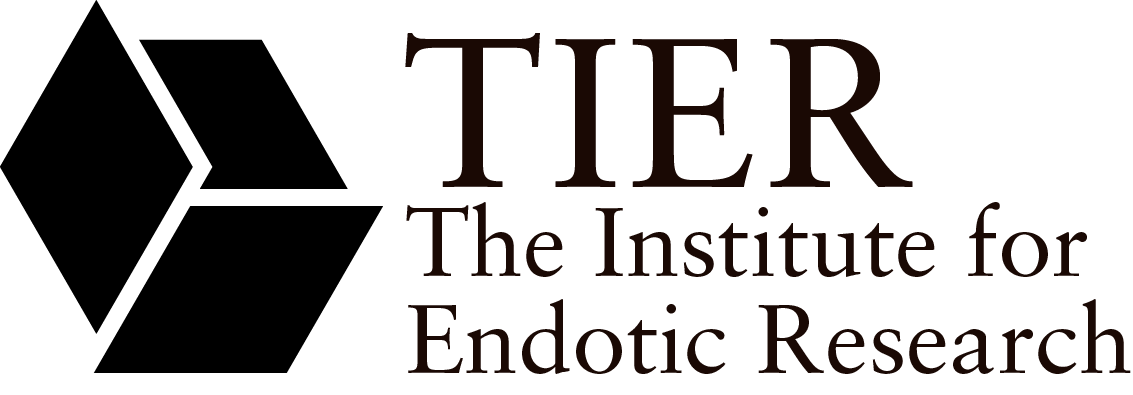Aurora. A Platform on Ecology, Interdependence and Mutual Aid
June – November 2022
A project assembled by The Institute for Endotic Research with MELT (Ren Loren Britton & Isabel Paehr), Linda Zhang & Dr. Biko Mandela Gray, Nnenna Onuoha, Shoufay Derz, mordo (Aline Baiana, Camila de Caux & Eric Macedo), Ana Alenso & Andrea Acosta, and Romuald Krężel.
—Christian Nyampeta
but by networking.
—Lynn Margulis
Aurora. A Platform on Ecology, Interdependence and Mutual Aid is an interdisciplinary project initiated by TIER. It departs from the notion of mutual aid, as a way to understand connections between ecology and interdependence. Aurora, which stands for dawn, is among the most common symbols for hope. The project goes beyond criticism, proposing actionable strategies for imagining better futures.
Zoologist and political scientist Piotr Kropotkin used the term mutual aid starting in 1880 to describe a model in which nature, in many observed cases, functions through collaborative entanglements. This perspective was confronting the one based on competition, proposed by the Neo-Darwinists, who sought a model of nature that justified the exploitative and competitive logic of capitalism from a scientific point of view. This capitalist model based on perpetual extraction is arguably one of the main reasons for the climate collapse.
Instead, the mutual aid model looked for a system that understands how all entities are entangled, and how species developed through collaboration in many cases. Scientist Lynn Margulis expanded on this model analyzing how symbiosis is at the basis of all life on Earth, and how this process is based on interdependence. Can the notion of mutual aid (understood both from biology and from politics) offer the tools to face the climate crisis and the developing collapse? By placing focus on interdependence, could it be possible to anticipate strategies against the climate collapse, learning from historical processes inscribed in the colonial program? What role does machine learning play?
The Institute for Endotic Research (TIER) seeks to combine these views and methodologies to produce a platform together with other institutions and collaborators, who work in a critical position between art, activism and science: how can we think and work within ecology from a decolonial perspective, and with the logic of mutual aid? Which kind of speculative fictions are possible to foster the imagination of alternative, more sustainable ways of coexistence among humans, nonhuman lifeforms and nonliving entities based on interdependence?
The platform “Aurora“ was presented from June to November 2022. Every month, there were be a new artistic installment at TIER, working as a spatial setting for hosting a workshop led by the invited contributors.
Aurora. A platform on ecology, interdependence and mutual aid is supported by:
![]()
Schedule
MELT (Ren Loren Britton & Isabel Paehr): Conspiring Timelines: Shimmering Temporalities
Workshop: Thursday, June 2 & Friday, June 3
Linda Zhang & Dr. Biko Mandela Gray: Phenomenology of the Road: Tracing the Materiality of Loss
Workshop: Friday, July 15, & Saturday, July 16
Shoufay Derz: Towards the Unknown: Rituals of Alienship
Workshop: Tuesday, September 6, Wednesday, September 7 & Thursday, September 8
Nnenna Onuoha: Apocalypse Where: Scenes from the Ends of the World
Workshop: Tuesday, September 13 & Wednesday, September 14
mordo (Aline Baiana, Camila de Caux & Eric Macedo): Merographic Relations: Steps to an Ecology of the Partial
Workshop: Friday, September 23 & Saturday, September 24
Romuald Krężel: Microclimate
Workshop: Friday, October 14, Saturday, October 15 & Sunday, October 16
Ana Alenso & Andrea Acosta: We are Satellites, Experimental Observations in Semi-Industrial Territories
Workshop: Friday, November 4 & Saturday, November 5
Photos

MELT (Ren Loren Britton & Isabel Paehr), “Conspiring Timelines: Shimmering Temporalities”. Photo by Benjamin Busch

MELT (Ren Loren Britton & Isabel Paehr), “Conspiring Timelines: Shimmering Temporalities”. Photo by Benjamin Busch

MELT (Ren Loren Britton & Isabel Paehr), “Conspiring Timelines: Shimmering Temporalities”. Photo by Benjamin Busch

MELT (Ren Loren Britton & Isabel Paehr), “Conspiring Timelines: Shimmering Temporalities”. Photo by Benjamin Busch

Linda Zhang & Dr. Biko Mandela Gray, “Phenomenology of the Road: Tracing the Materiality of Loss”. Photo by Benjamin Busch

Linda Zhang & Dr. Biko Mandela Gray, “Phenomenology of the Road: Tracing the Materiality of Loss”. Photo by Benjamin Busch

Linda Zhang & Dr. Biko Mandela Gray, “Phenomenology of the Road: Tracing the Materiality of Loss”. Photo by Benjamin Busch

Linda Zhang & Dr. Biko Mandela Gray, “Phenomenology of the Road: Tracing the Materiality of Loss”. Photo by Benjamin Busch

Shoufay Derz, “Towards the Unknown: Rituals of Alienship”. Photo by Lorenzo Sandoval

Shoufay Derz, “Towards the Unknown: Rituals of Alienship”. Photo by Lorenzo Sandoval

Shoufay Derz, “Towards the Unknown: Rituals of Alienship”. Photo by Lorenzo Sandoval

Shoufay Derz, “Towards the Unknown: Rituals of Alienship”. Photo by Aouefa Amoussouvi

Nnenna Onuoha, “Apocalypse Where: Scenes from the Ends of the World”. Photo by Lorenzo Sandoval

Nnenna Onuoha, “Apocalypse Where: Scenes from the Ends of the World”. Photo by Lorenzo Sandoval

mordo (Aline Baiana, Camila de Caux & Eric Macedo), “Merographic Relations: Steps to an Ecology of the Partial”. Photo by Sias Woelbing

Romuald Krężel, “Microclimate”. Photo by Aouefa Amoussouvi

Romuald Krężel, “Microclimate”. Photo by Aouefa Amoussouvi

Romuald Krężel, “Microclimate”. Photo by Aouefa Amoussouvi

Ana Alenso & Andrea Acosta, “We are Satellites, Experimental Observations in Semi-Industrial Territories”. Photo by Lorenzo Sandoval

Ana Alenso & Andrea Acosta, “We are Satellites, Experimental Observations in Semi-Industrial Territories”. Photo by Lorenzo Sandoval

Ana Alenso & Andrea Acosta, “We are Satellites, Experimental Observations in Semi-Industrial Territories”. Photo by Lorenzo Sandoval
